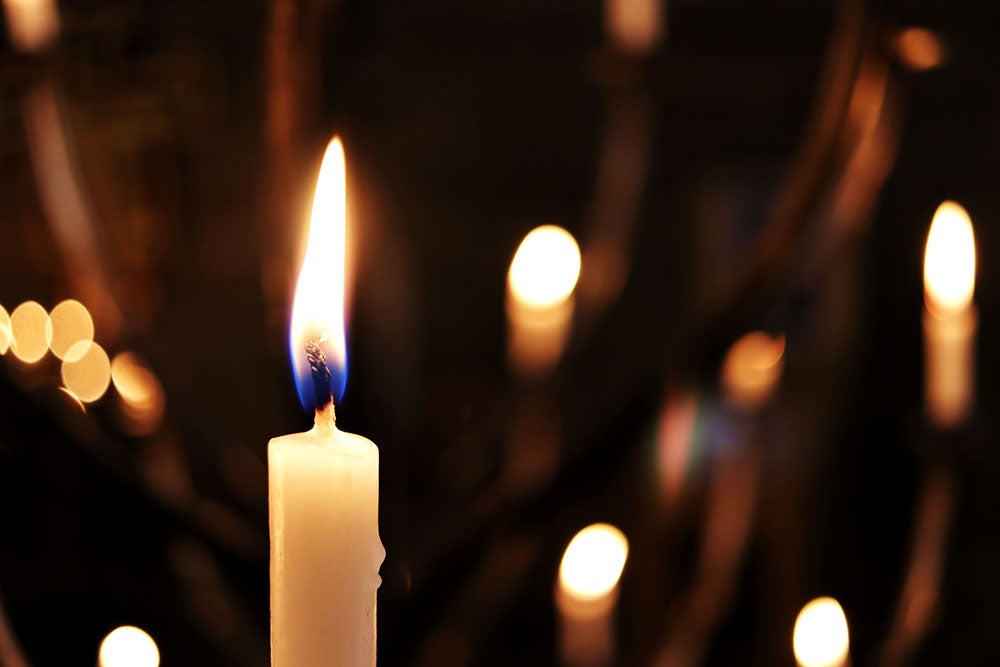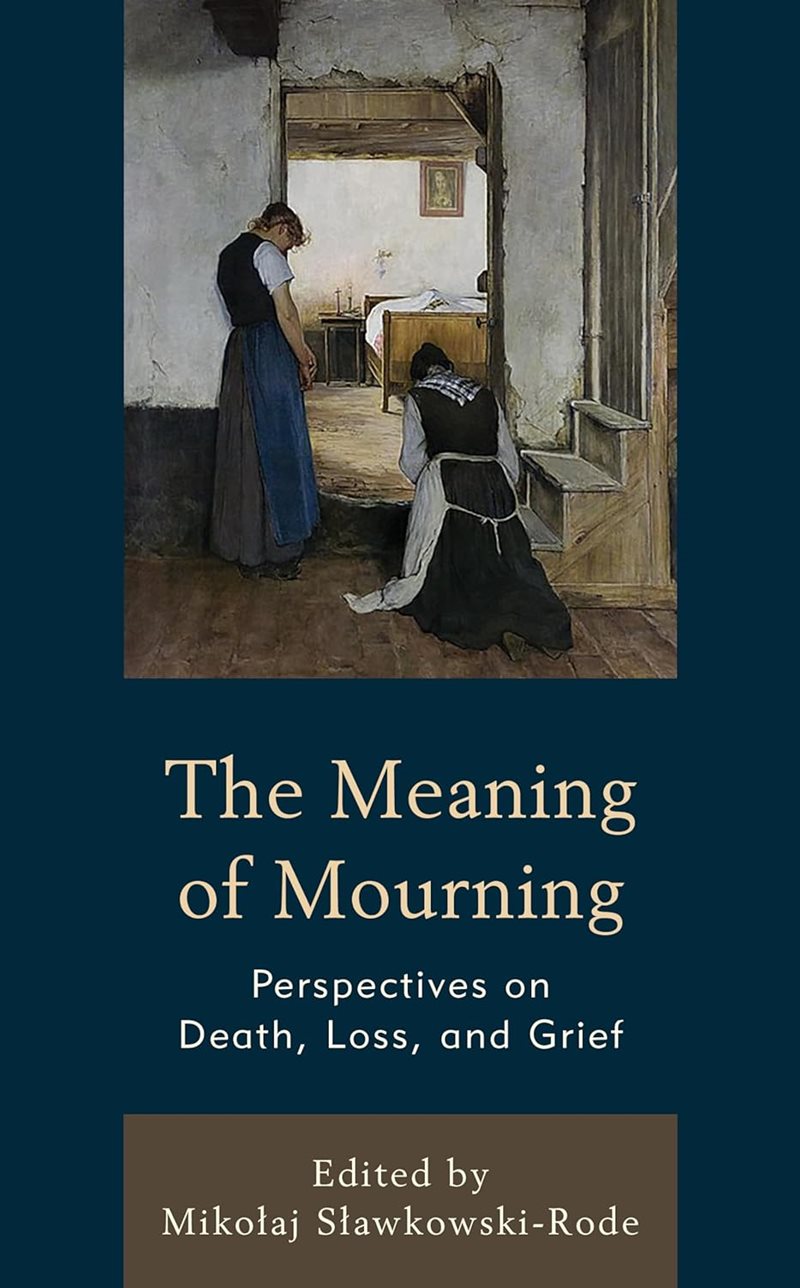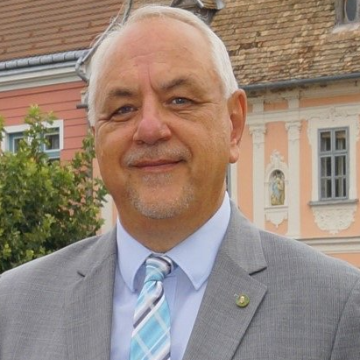“Grief saves you from depression”

The Meaning of Mourning was published in the United Kingdom in January 2023, with chapters on death, loss and grief by fifteen philosophers, including Professor Balázs M. Mezei. We talked to Balázs Mezei, a religious philosopher, Professor of the Institute of Political Science at the Corvinus University of Budapest about the nature of mourning, its inevitability, rituals, Antigone’s dilemma, and how evil ultimately reveals good.
It is an instinctive need to strengthen a community through grief. More and more people choose cremation and scattering ashes, or keep their loved one in an urn on a bookshelf at home saying that’s how the deceased will remain with them. How important are traditions and ceremonies today?
I think they are important, although many people would disagree. There is a trend against grieving in today’s culture, linked to the digital culture that seeks to “put aside the passing”, to give humans immortality, to “save” human identity. Parts of the body that no longer work can be replaced, people wear glasses and dentures, and there are organ transplants, so why not transplant something into the brain? This transhumanism actually makes people manipulable.
In my opinion, however, Trauerarbeit (grieving) cannot be spared, and the traditional method of coping with loss cannot and should not be forgotten. Think of how soldiers, for example, say that the faces of those they have killed stay with them for the rest of their lives. If we take death seriously, we must also take mourning seriously. As I wrote in my paper published in the book, grief saves you from melancholy, and I mean depression in the medical sense.
Grief is the loss of a loved one, while depression is the loss of one’s self.
That’s right. The grieving process and its different phases are important; it’s a journey to go through, it means being meaningful. What is meaningfulness? To conceive of ourselves, the existence of society as beings with a meaningful purpose; the universe should be like that. If meaning is lost, the meaning of history is lost.
It seems that we have not learnt our lessons from the Holocaust, genocides are still taking place in different parts of the world, and now we are witnessing a terrible war in Israel. Does homo sapiens learn from nothing?
Freedom can be used for good or for evil. There are those who say, like Eli Wiesel, for example, that the Holocaust, the incomprehensible evil is an untouchable subject. I think this could cause problems. But then there’s the Viennese psychiatrist Viktor Frankl, for example, who says that the bad ultimately reveals the good. It is known that Frankl was deported with his pregnant wife and parents to a concentration camp. He was the only one to survive, and fell into a deep depression after the war, then wrote his famous book “Yes to Life: In Spite of Everything”. In it, he argues that human life can be given meaning even in the most horrific circumstances.
I think that the medieval saying bonum est diffusivum sui, that is, goodness is self-diffusing, cannot explain evil. So I paraphrase and claim that goodness is both a denial and a restoration of one’s self (refusivum sui). The good is good because it integrates the bad. The mechanism for this is grieving. It is spiritually and communally justified that reality is better when it integrates the bad. My mother, who had been through a lot, put it this way: all that is bad is directed towards something good.
There are always those who do not learn from anything, but monomaniacally seek to extend their own power, which is what caused the Holocaust. Since man is a free being, he is capable of this, but it is precisely because of his freedom that he is capable of good, of progress, that is, of overcoming evil with good. We are now witnessing the clash of these two aspirations, while the narratives have become more sophisticated. It’s like profiteering merchants, who present junk in spectacular packaging.

In your study you write beautifully about the film Son of Saul.
Yes, in the film directed by László Nemes Jeles Saul does the most horrible work in the concentration camp: he is a member of the Sonderkommando. In this surreal, horrific situation, his every desire and goal is to find a little boy (whom he thinks of as his own son), who by some chance did not perish in the gas chamber, but who is shot dead by a Nazi officer in front of Saul – well, for this little boy, he wants to find a rabbi to say the Kaddish for him. What struck me most was the scene outside the camp where Saul is confronted by a peasant boy who smiles at him. And after a while Saul smiles back at the child. For me, this “exchange of smiles” means that even the most horrible situation in life can be overcome.
In your study, you also write about the tragedy that can result from the lack of mourning, using the example of Antigone in Sophocles’ play where Creon does not allow Polynices to be buried or mourned. Don’t you think, for example, that this happened here in 1956? The dead of the Revolution could not be mourned, and their relatives visited Plot 301 in secrecy and fear.
Yes, exactly. The “unburiedness” of Imre Nagy proves that the Antigone problem is still with us, only that, unlike in the Greek drama, it is denied in a thousand ways today. Even János Kádár was shocked by this. “I’m going to Imre’s funeral”, said the then very ill and disturbed former party secretary general in 1989, but of course this was prevented.
It may seem a strange question, but it is not just people who can be mourned, as animals can be mourned too. Many people consider them companions and mourn them just like humans. What is your view on this?
From my own experience, I know what it is like to grieve. Man is a social being, having a quasi-personal relationship with familiar objects, landscapes, or even pets. You know how much you can love your horse, your dog, or your favourite goose. Man used to be in communion with nature; this was the reality even in ancient times, to which the original meaning of the term cosmopolitan referred. Man is a social being at all levels.

Balázs M. Mezei, professor of Philosophy at Corvinus
What do you think of Dániel Karsai, the 46-year-old attorney and constitutional lawyer, who suffers from incurable ALS? Karsai has appealed to the European Court of Human Rights in Strasbourg to allow euthanasia in Hungary.
I would connect euthanasia to the theme of grief. Grief can take many forms, but it always involves the vulnerability of the bereaved. There is a struggle to avoid the melancholy of meaninglessness and to achieve a state of sadness with meaning. The work of grief takes place below the horizon of meaning, gradually making it clear and conscious, thereby avoiding unhealthy isolation and melancholy, and expressing the meaning of existence.
Euthanasia, at least in its active form, weakens or even eliminates vulnerability. The questions that arise are extremely serious. For example: Who is responsible for deciding whether to carry out active or passive euthanasia? Because the concerned person’s judgement, when faced with a so-called incurable disease, may be called into question. Also, there is the old saying you quoted: “medicine is not mathematics”. It works with empirical probabilities, with diagnoses and procedures that are not entirely certain, although today’s doctors deserve the highest respect. And finally, let us not forget that it is genuinely possible to develop new cures and medicines for long-term diseases. Having said that, I do not underestimate the extreme burden of severe suffering under which passive euthanasia, at least in the qualified sense, may appear desirable.
How did your study end up in the volume?
So far I have published more than ten volumes in English, including collections produced in collaboration with a number of internationally renowned colleagues. The relationship between religion and philosophy is a recurrent focus of our work. The editor of this volume, Mikolaj Slawkowski-Rode, is a Polish-English philosopher, and a lecturer at Oxford University, who is also a student of Roger Scruton. He is a frequent visitor in Budapest, participating in processing Scruton’s oeuvre, and helping with the development of Polish-Hungarian philosophical relations. He also participated in my international conference last autumn, which was sponsored by the Templeton Foundation. Hence my invitation to contribute.
How would you summarise the essence of the study?
My study is a kind of “life summary”: the historical figures and the philosophical interpretations of grief reviewed in the paper point to important aspects of my own research profile and life history, as does the ultimate philosophical understanding of grief. The latter can be summarised in that grieving is the actualisation of the horizon of meaning. Failure to do so results in an unhealthy spirit, but its fulfilment makes clear the individual, communal and historical meaning of existence. In our age this meaningfulness is repeatedly threatened, as the meaningfulness of great traumas is denied by many. However, this also calls into question the meaningfulness of existence, which is a serious problem not only because of its morbidity, but also because it is manipulative and exploitative. The main task of science, including philosophy, is not least to counteract this.
Closely linked to this aspiration, there are numerous traditions, such as the Day of the Dead and All Saints’ Day that usher in the autumn season, a time of rest for nature, and prepare the way for the Christmas cycle, which focuses on renewal. The celebrations of Diwali, Hanukkah and the Protestant Reformation during the same period carry a similar symbolism: the festival of lights that illuminates the season of grief natural in the autumn. The meaningfulness of our humanity shines through here, and the great religious traditions and serious philosophical thinking agree that this meaningfulness is important to recall and reformulate.
Katalin Török